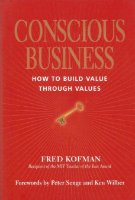"Living consciously is a state of being mentally active rather than passive. It is the ability to look at the world through fresh eyes. It is intelligence taking joy in its own function. Living consciously is seeking to be aware of everything that bears on our interests, actions, values, purposes and goals. It is the willingness to confront facts, pleasant or unpleasant. It is the desire to discover our mistakes and correct them... It is the quest to keep expanding our awareness and understanding, both of the world external to self and of the world within."
- Nathaniel Branden
What tastes good is not always good, and what is good does not always taste good. That's why you need a science of nutrition. If you eat automatically, guided by instinct, you will get in trouble. To grow healthy and strong you need to eat consciously.
What feels good is not always good, and what is good does not always feel good. That's why you need a science of action. If you act automatically, guided by instinct, you will get in trouble. To grow happy and successful you need to act consciously.
Conscious or Unconscious?
The opposite of consciousness is not unconsciousness but automatism. Acting unconsciously means acting like a robot, programmed by instinct or rote.
Have you ever been going down the highway engaged in a conversation or daydreaming, only to realize that you missed your exit? You didn't literally lose consciousness, but you focused your awareness on something other than driving, trusting your instinctive "autopilot". Relevant details, such as your location and the actions needed to reach your goal, receded to the background of your mind. Your eyes were open, but you didn't see.
This is a poor way to drive--and an even poorer way to live.
Consciousness is the ability to experience reality, to be aware of our inner and outer worlds. It allows us to adapt to our environment and act to promote our lives. All living beings possess consciousness, but human beings have a unique kind. Unlike plants and other animals, we can think and act beyond instinctual drives and conditioning. We can be autonomous (from the Greek, "self-governing"). While this autonomy is a possibility, it is not a given. We must develop it through conscious choices.
To be conscious means to be awake, mindful. To live consciously means to be open to perceiving the world around and within us, to understand our circumstances, and to decide how to respond to them in ways that honor our needs, values, and goals. To be unconscious is to be asleep, mindless. To live unconsciously means to be driven by instincts and habitual patterns.
When we are more conscious, we can better perceive our surroundings, understand our situation, remember what's important to us, and envision more possibilities for action to attain it. Consciousness enables us to face our circumstances and pursue our goals in alignment with our values. When we lose consciousness, we are swept away by instincts and habits that may not serve us. We pursue goals that are not conducive to our health and happiness, we act in ways that we regret later, and we produce results that hurt us and those we care about.
In this video you will see the introduction to the Linkedin's Conscious Business
Program Structure
Module 1: Introduction
1.1. How To Bring Wisdom And Compassion To The Business World
1.2. Invitation To Conscious Business
1.3. Energy For Action
1.4. Success In 3D
1.5. Be To Do To Have
1.6. Coaching 1: Do Onto Others
Module 2: Leadership
2.1. Your Job Is Not Your Job
2.2. Just Let Me Do My Job
2.3. Hang Together Or Hang Separately
2.4. A True Leader Has No Followers
2.5. Anxiety Into Confidence
2.6. Coaching 2
Module 3: Response-Ability
3.1. The Ultimate Human Ability
3.2. Victim Or Player?
3.3. Success Beyond Success
3.4. Be Your Own Hero
3.5. Knower or Learner?
3.6. Coaching 3
Module 4: Humility
4.1. The Most Despicable Character
4.2. Despicable Me?
4.3. The Ladder of Inference
4.4. Facts Versus Opinions
4.5. Understand Each Other
4.6. Coaching 4
Module 5: Communication
5.1. Difficult Conversations 101
5.2. How To Really Listen
5.3. How To Inquire Constructively
5.4. How To Express Yourself
5.5. How to Invite Inquiry
5.6. Honesty Or Respect?
5.7. Coaching 5
Module 6: Collaboration
6.1. Difficult Conversations 201
6.2. How To Deal With Conflict
6.3. Weave A Negotiation Safety Net
6.4. Escalate Cleanly
6.5. Practicing a Difficult Conversation
6.6. Coaching 6
Module 7: Coordination
7.1. How to Make An Effective Request
7.2. How to Make An Effective Promise
7.3. How to Commit With Integrity
7.4. How To Make An Effective Complaint
7.5. How To Make An Effective Apology
7.6. How To Set Standards
7.7. Coaching 7
Module 8: Co-Evaluation
8.1. Stop Giving Feedback
8.2. Prepare For Co-Evaluation
8.3. Build Rapport To Improve Performance
8.4. When Things Are Not Working
8.5. Turn a Bomb Into A Combustion Engine
8.6. Coaching 8
Module 9: Perspectives
9.1. First Person: Self-Awareness
9.2. Second Person: Empathy
9.3. Third Person: Objectivity
9.4. Fourth Person: Wisdom
9.5. Fifth Person: Compassion
9.6. Coaching 9
Module 10: Emotions
10.1. The Heart Has Its Reasons
10.2. Pleasure and Pain
10.3. Based on Love
10.4. Angry at Yourself
10.5. Emotional Bankruptcy
10.6. Coaching 10
Module 11: Emotional Intelligence
11.1. Emotional Management
11.2. Explosion, Repression, Expression
11.3. Mindfulness I
11.4. Mindfulness II
11.5. Mindfulness III
11.6. Coaching 11
Readers: If you have worked with this material at LinkedIn or any other company, I would love to hear about your experience and takeaways.  Please write a comment below. I'd love to reconnect with all the conscious business friends I've made in the past, and to invite new ones to join our circle.
Please write a comment below. I'd love to reconnect with all the conscious business friends I've made in the past, and to invite new ones to join our circle.
Fred Kofman is Vice President of Executive Development at LinkedIn. This post is part 1.1. of LinkedIn's Conscious Business Program. You can find the introduction and structure of this program in next Wednesday's post. To stay connected and get updates join our group: Conscious Business Friends
